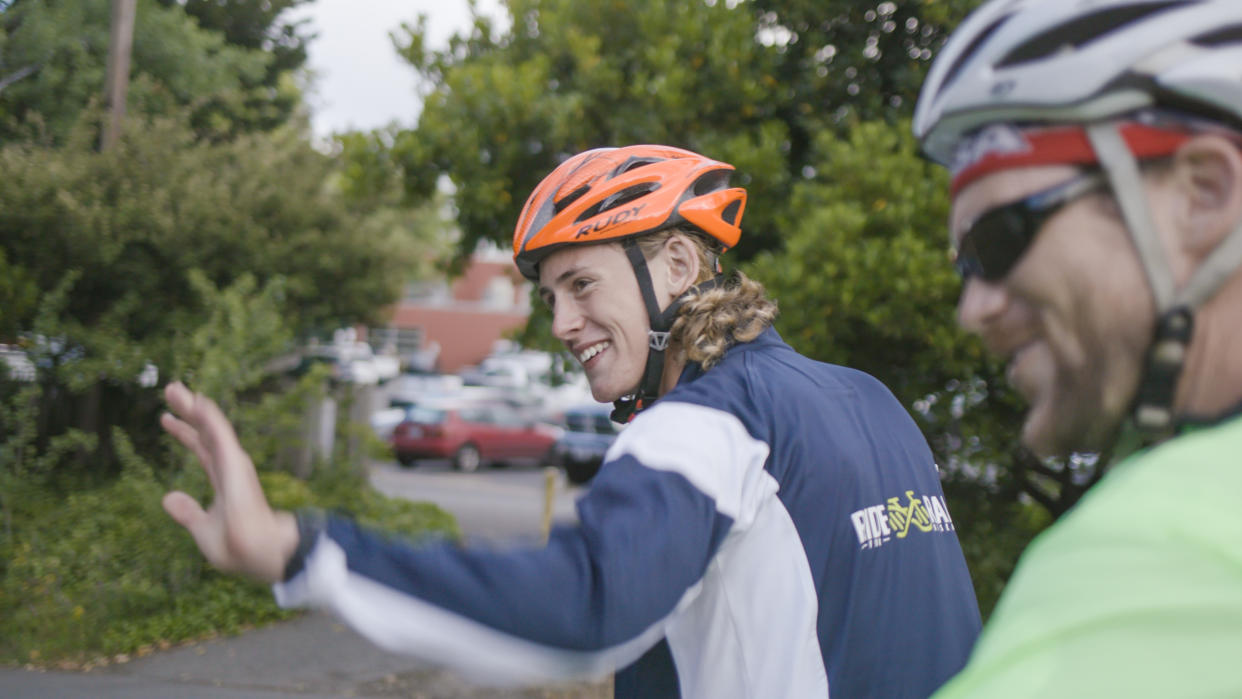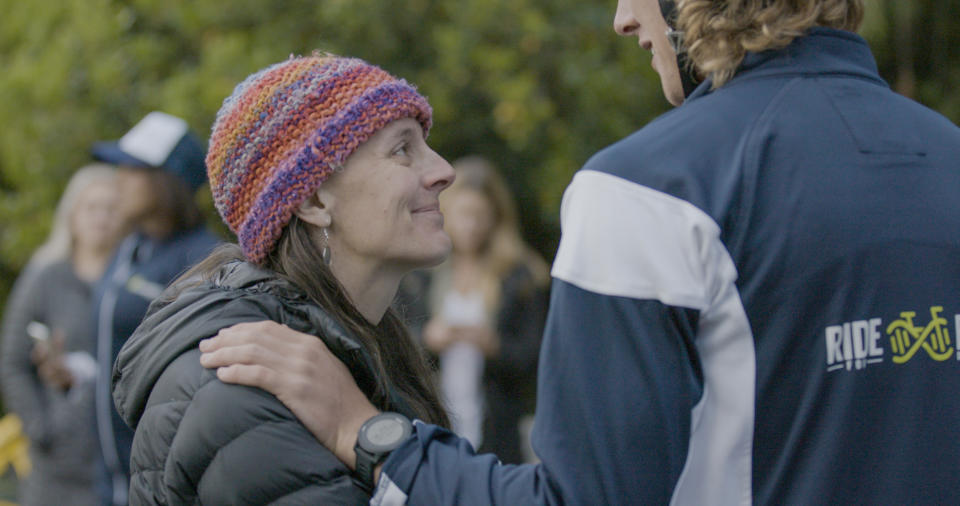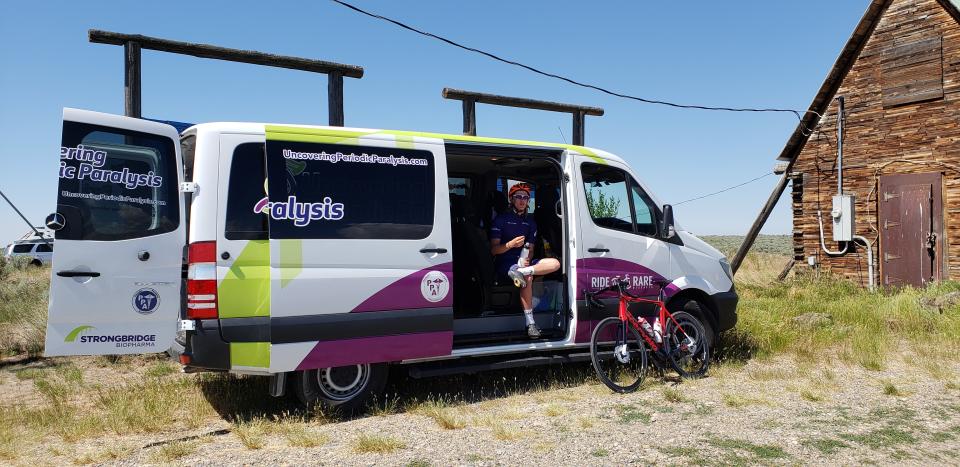This 17-year-old is riding his bike across the country to raise awareness of the disease that temporarily paralyzes him

A teenager with a condition that temporarily paralyzes him is riding his bike across the country to raise awareness for rare diseases.
Gabriel Low has a rare condition called hypokalemic periodic paralysis, an inherited neuromuscular condition that causes recurrent, progressive, and debilitating episodes of muscle weakness and temporary paralysis.
Low, 17, tells Yahoo Lifestyle that he always remembers experiencing odd symptoms. As a child, he’d sometimes lay down on the ground and not get up when he was called, or he’d sit down on the playground at school and be stuck there. “The bell would ring, and I wouldn’t be able to get up and go inside,” he says. “It’s kind of like sleeping with your eyes open. As a kid, I just thought that everyone does this.”
Low’s mother also suffers from the condition and luckily was able to recognize his symptoms early on. He was diagnosed with hypokalemic periodic paralysis at age 6. Unfortunately, his mom wasn’t diagnosed until she was 30.
Low says that he has been “really, really lucky” compared to what his mom went through. She was a competitive athlete who once became paralyzed during a world championship race for mountain biking — and she didn’t know why. “Her whole life changed because she didn’t have a diagnosis,” Low says. “She had to stop racing. It was really hard.”

Hypokalemic periodic paralysis is a type of a larger group of genetic diseases known as primary periodic paralysis (PPP), Amit Sachdev, MD, an assistant professor and director of neuromuscular medicine at Michigan State University, tells Yahoo Lifestyle. PPP is “really rare,” Sachdev says, noting that there are about 4,000 to 5,000 cases in the U.S. At its core, PPP is a problem with the way a person’s muscles create their strength and movement, he explains. “Patients who have PPP are born with this problem and have episodes of weakness where they can’t use their legs or arms.”
These episodes are sparked by certain triggers, which include being exposed to extreme heat or cold, excessively working out, being exposed to certain medicines, being sick, or consuming alcohol, Sachdev says. “Things that change the environment of the body can cause fluctuations in your electrolytes and can trigger the weakness,” he explains. People are generally advised to avoid their triggers as much as possible, but in some cases they may need to be hospitalized during a flare-up. “Patients can develop problems with their heart because the heart is a muscle,” Sachdev explains. “Some flares can be really dangerous.”

Low’s form of PPP involves issues with having low potassium levels, so he takes medication as well as potassium supplements to try to regulate his levels. Exercise also helps, although Low says he still has symptoms periodically.
“I notice at times that when I’m riding [my bike] my legs aren’t as strong. I won’t be able to push as hard,” he says. “Something feels off, and they just feel weird.” When that happens, Low says he takes some potassium and a 10-minute break, and then he feels better. But about six months ago, he had what he describes as a “total paralysis attack” at the end of a triathlon race. “That was a wake-up call for me,” he says. “I realized I have this disease more than I thought I did.”
Low’s hope with his ride is to raise awareness of rare diseases as a whole, and he’s received some assistance thanks to a sponsorship from Strongbridge Biopharma, a company that decided to chip in after hearing about his plans.
Low started his ride in Seattle, and he’s planning to end it in Cleveland, where he’ll compete in the USA Triathlon Junior National Championships in hopes of qualifying for the world championships next year. He’s currently logging between 80 and 100 miles a day and says he’s “as tired as I can be.”

Read more from Yahoo Lifestyle:
Follow us on Instagram, Facebook, and Twitter for nonstop inspiration delivered fresh to your feed, every day.
